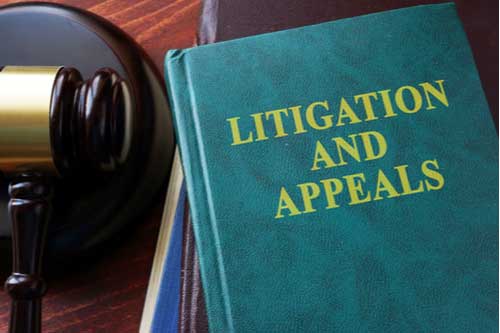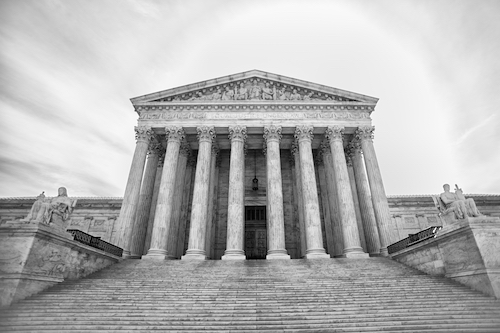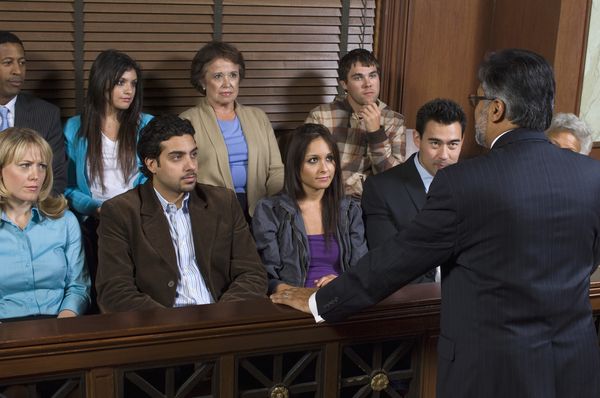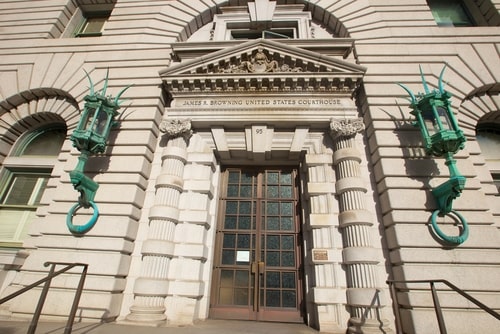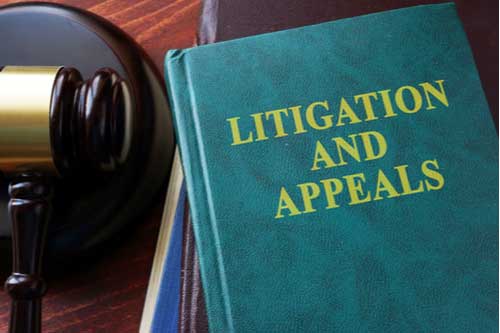- Appellate Litigation
Appealing the ruling in a case isn’t an easy process. There are specific rules and regulations regarding appellate cases that a trial lawyer may not be familiar with. Because of this, it’s essential to have the support of an appellate attorney if you plan on appealing a case or if the judgement in your civil trial has been appealed.
Gusdorff Law specializes in San Diego appellate litigation and can provide you with the expert assistance that you need. We’ve successfully appealed judgements and have also helped many clients uphold the judgement that they fought for. We know the California appellate courts very well, and we have a strong appeals track record. Call 818-877-4515 today for a free consultation.
What Is Appellate Law?
While cases begin in trial court, this isn’t necessarily where a case ends. It’s possible for the court’s verdict or part of the court’s decision to be appealed by one or even both parties. This appeal process is known as appellate law. Appeals must be filed within a specific time frame.
When a case is appealed, it is brought to a higher level of court. By appealing a decision, you are requesting that a higher court reviews the decision that a lower court as made. A decision can be appealed for a number of reasons, including procedural issues or material issues made during the trial. In most cases, parties cannot appeal a case simply because they don’t like the decision. An appeal isn’t a do-over. It’s simply an opportunity for a higher court to review a trial and address any mistakes that were made.
The purpose of appellate law is to ensure that litigants have recourse if there are issues with the trial or ruling from the lower court. It’s essentially a form of checks and balances. If a judge makes a mistake or fails to follow the law, both parties have the option of requesting that another judge from a higher court corrects the issue.
Appeals are distinct from retrials. No new evidence cannot be presented in an appellate court, and new witnesses cannot be called. Instead, an appeal lawyer must build an argument based on the trial transcript. It’s the job of the appellate court to determine if the initial ruling in a case was appropriate.
When a case is heard by an appellate court, it is heard by a judge that did not play a role in the original trial. Because of this, the judge will come into the case without any impressions. They’ll be able to review the evidence from a fresh perspective and can determine if there were any legal errors made during the trial.
How Is an Appellate Lawyer Different From a Trial Lawyer?
Unlike trial lawyers, appellate lawyers don’t have the option of presenting new evidence or calling witnesses. Instead, an appellate attorney must construct an argument based on the written record of the case. Objectivity is key when it comes to appellate law. Attorneys must be able to review the record of a case without any sort of bias.
Trial lawyer to handle pretrial issues and build a case. In contrast, appellate lawyers must work from the transcript of the trial. It’s their job to write and present a brief to the appellate court that argues why the lower court’s decision should be overturned. It’s the job of an appellate lawyer to improve the way a case is presented and to make arguments that will resonate with an appellate judge.
If you’ve already worked with a trial lawyer on your case, you may think that you can continue to work with them during the appeals process. Even if you had a positive experience with the attorney that you originally worked with, you’re much better off working with a lawyer that understands the appellate court.
Appellate lawyers use their specialized knowledge and experience to advance arguments that are in line with the rules of appellate court. Post-judgement, appellate lawyers can assess a case to see if there are grounds for appeal. Attorneys may also be able to mediate a case that is pending appeal, securing a settlement.
What Can Be Appealed?
If you’ve lost a case, you don’t automatically have the right to appeal the decision. Generally speaking, a case can only be appealed when there are legal grounds to do so. In criminal cases, only the defendant can appeal the decision. In civil cases, both parties can file an appeal.
In California, a case can only be appealed if there are legal issues. Legal errors that would justify appeal include procedural errors, exclusion of evidence, prosecutorial misconduct or ineffective counsel. Questions of fact, such as the innocence or guilt of the defendant, are not grounds for appeal.
Gusdorff Law can review your case and determine if there were legal issues in the trial court that would give grounds for appeal. We can also tell you more about the remedies available to you if we win your appeal. Don’t hesitate to reach out to us if you’d like us to review your case. We’d be happy to discuss your case with you and answer any questions that you might have.
What Functions of the Appellate Process Does Gusdorff Law Handle?
Gusdorff Law specializes in San Diego appellate litigation. When you work with us, we’ll take a personalized approach to your case and provide you with the services and support you need. Whether you want to challenge or protect a judgement, our law firm will handle all steps of the appellate process, including:
Briefs
This is a document that describes the facts of a case and the legal issues that the case is being appealed on. Briefs make the argument for an appellate case, and because of this, they must be written by a specialist. If you’re appealing a decision, Gusdorff Law will handle your opening brief and your reply brief. If you’re fighting to protect a decision, we can file a response to the appellant’s opening brief.
Writ of Petition
If there are not legal grounds for appeal, or if waiting for an appeal would cause significant hardship, a writ of petition can be filed. These petitions are reviewed at the higher court’s discretion. Usually, writs are considered to be a last resort when there are not better legal options.
Oral Arguments
In appellate case, oral arguments are an opportunity to expand on the arguments raised in briefs. Attorneys may clarify arguments or stress the most important points within the briefs. Judges may also ask questions during this time.
Petition for Review
This term can describe a notice of appeal or a petition to suspend or review an agency decision. When necessary, Gusdorff Law can file a petition for review within the appropriate timeframe.
Pre-Trial Motions
Pre-trial motions can be a way to dismiss a case before it is heard by a court or to request that the court make a decision without a trial. Some motions, such as a motion alleging improper venue, must be made before a case goes to trial.
Trial/Post-Trial Motions
Other motions can be filed during a trial or after a trial has concluded. Post-trial motions are distinct from appeals in that they are filed in trial court. Examples of post-trial motions include a motion for a new trial or a motion to set aside the verdict.
Trial and Appellate Mediation Briefing and Representation
Settlement is an option even after judgement has been delivered. When Gusdorff Law represents you in appellate mediation, we will see if it’s possible to negotiate the case outside of court. Settlements can save valuable time, and they can also reduce your expenses.
Opposition to Motions for Summary Judgement
A motion for summary judgment takes place when the party states they want a judgment to be made on specific facts of the case without going to trial. We can help you oppose such motions, so your case can be heard.
What Types of Appeals Does Gusdorff Law Handle?
Gusdorff Law has extensive experience with California appellate law and handles many different types of writs and appeals. We primarily handle appeals for civil cases, such as claims involving:
Even if your case doesn’t fall into one of these categories, you should take the time to reach out to our firm. We’ve represented a wide range of clients, and there’s an excellent chance that we’ll be able to assist you as well.
The founder of Gusdorff Law, Janet Gusdorff has handled writs and appeals exclusively for more than a decade. Thanks to her extensive expertise, clients will have a strong advantage in the appellate courts. Successfully appealing a decision can be difficult, but with the right attorney, you’ll have a much higher chance of success.
Call an Experienced San Diego Appellate Litigation Attorney Today
Appellate cases are extremely complicated. Whether you want to protect a judgement or hope to appeal the trial court’s decision, you’ll need the support of an experienced San Diego appellate lawyer to achieve a positive outcome. Gusdorff Law will work with you throughout every step of this difficult process. Call us today at 818-877-4515 if you’d like our firm to review your case.
